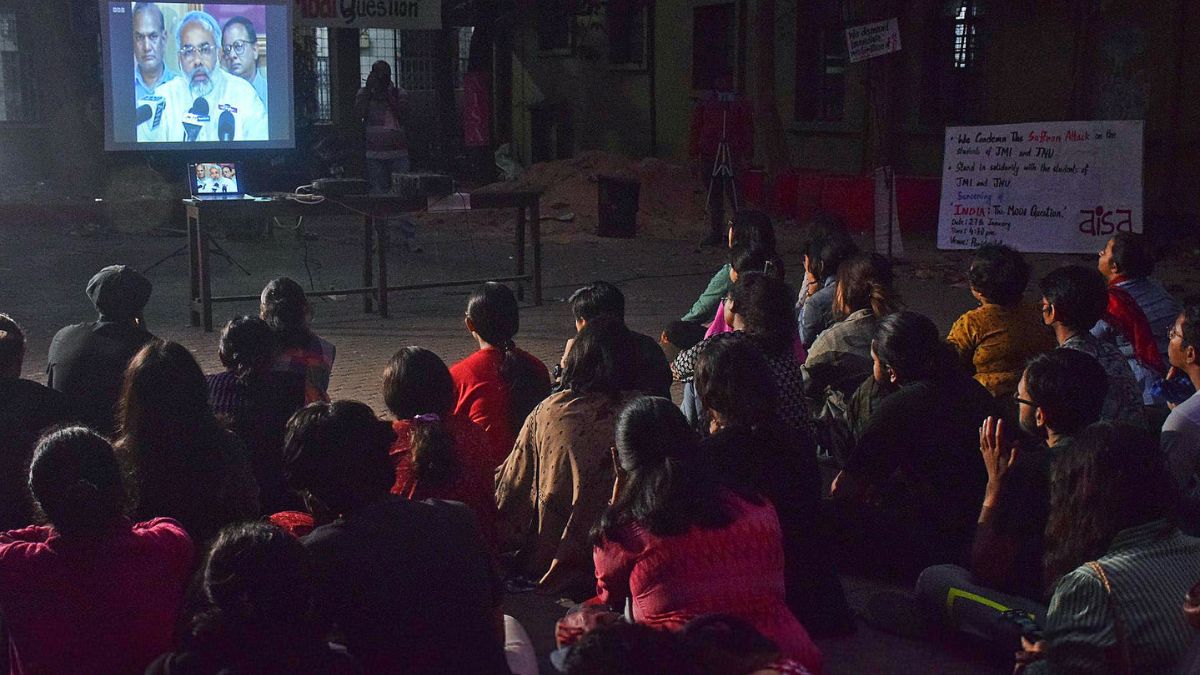- By Nikhil Singh
- Fri, 03 Feb 2023 10:06 AM (IST)
- Source:JND
THE SUPREME Court of India will hear pleas challenging Centre’s ban on a BBC documentary, apparently critical of Modi, today on February 3. The documentary titled ‘India: The Modi Question’ was taken down from YouTube and links were blocked from Twitter after the Centre’s direction.
The Chief Justice of India DY Chandrachud led the bench that took up the matter for hearing. Senior Advocate CU Singh was representing the petitioners in the top court. Senior Journalist N Ram, Advocate Prashant Bhushan, Trinamool Congress Member of Parliament Mahua Moitra are the ones petitioners who have challenged the government’s ban.
Also Watch:
The Union of India through Ministry of Information and Broadcasting, Google India Privte Limited (it owns YouTube), Twitter Communications India Private Limited have been named as the respondents in the matter.
What is this BBC Documentary on Modi?
The British Broadcasting Corporation had released a two part series on Prime Minister Narendra Modi, which was derided as “propaganda” by the External Affairs Ministry of India. The Union Ministry of Information and Broadcasting had used the emergency powers accorded to it by the new IT Rules to direct YouTube to take the down the video and Twitter to block the tweets that shared the links to the documentary.
The makers of the documentary that riled the government so much claimed that they investigated the role of Modi during the 2002 communal riots in Gujarat that had ensued after the Godhra train coach burning incident. India’s current Prime Minister Narendra Modi was then the Chief Minister of the state.
According to media reports, the documentary shows British Government’s documents submitted to it by an inquiry team that suggests that Modi prevented the police from stopping violence that was targeted at Muslims.
Several opposition parties and student organisations have screened the documentary on University campuses in cities and towns across India. Authorities have had to struggle to prevent such screenings. In JNU, the administration even cut electricity for a while so that the students could not screen the documentary on a large screen.
(With agency inputs)

